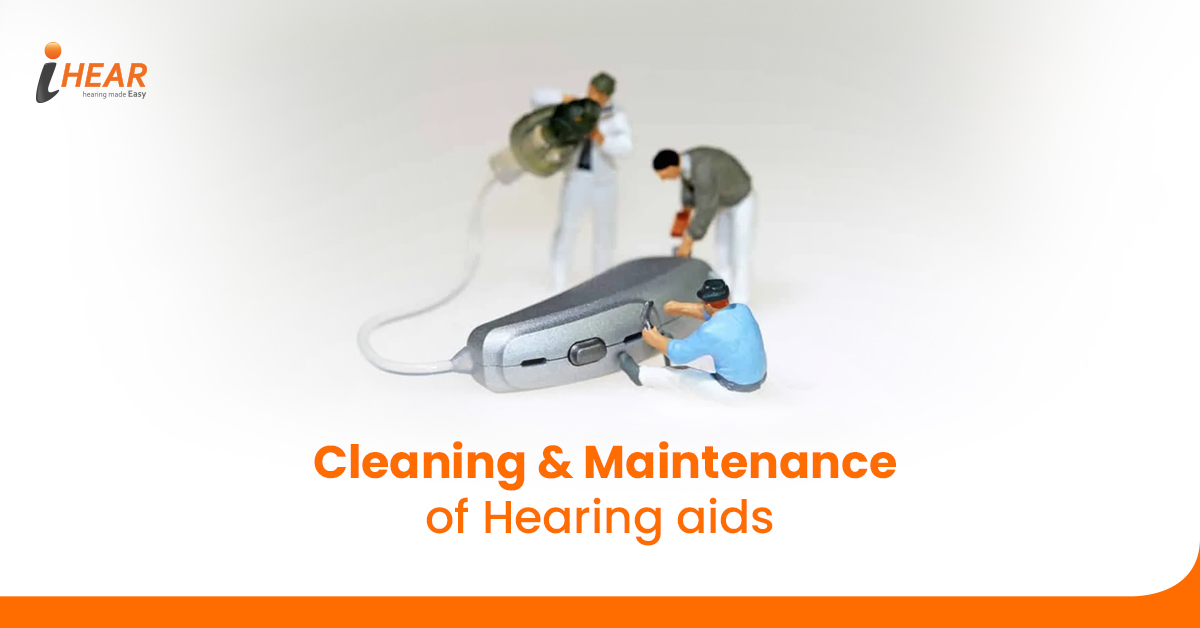CLEANING & MAINTENANCE OF HEARING AIDS
Cleaning and maintaining hearing aids is crucial to ensure they function properly and last a long time. Proper care can also help prevent ear infections and discomfort. Here are some general guidelines for cleaning and maintaining hearing aids:
1. Wash Your Hands: Before handling your hearing aids, make sure your hands are clean and dry to prevent transferring dirt and oils.
2. Daily Cleaning:
- Wipe Down: Use a soft, dry cloth or tissue to gently wipe the surface of the hearing aids to remove any wax or debris.
- Inspect the Microphone and Speaker: Check the microphone and speaker openings for any visible debris or wax buildup and gently clean them with a soft brush or hearing aid cleaning tool.
- Replace Wax Guards: If your hearing aids have wax guards or filters, replace them regularly as recommended by your audiologist or the manufacturer.
3. Weekly Cleaning:
- Clean Ear Molds or Tips: If your hearing aids have custom ear molds or silicone tips, remove them and clean them with warm, soapy water. Rinse them thoroughly and let them dry completely before reattaching them to the hearing aids.
- Battery Contacts: If your hearing aids use disposable batteries, check the battery contacts for any corrosion. If you see corrosion, clean it with a dry cotton swab.
4. Monthly Maintenance:
- Replace Wax Filters: If your hearing aids have wax filters, it’s important to replace them regularly, typically every one to three months, or as recommended by your audiologist.
- Check the Tubing: If your hearing aids use tubing to connect to the ear molds, check for any cracks or signs of wear. Replace the tubing if necessary.
5. Avoid Moisture:
- Remove your hearing aids before showering, swimming, or engaging in activities where they may come into contact with moisture.
- Consider using a hearing aid dehumidifier or a drying kit to remove any moisture that may accumulate inside the hearing aids.
6. Store Properly:
- When not in use, store your hearing aids in a protective case to prevent dust and debris from accumulating on them.
- Remove the batteries if you won’t be using the hearing aids for an extended period.
7. Avoid Dropping: Be careful not to drop your hearing aids as they can be damaged by impact.
8. Professional Maintenance:
- Schedule regular check-ups with your audiologist or hearing care professional. They can perform thorough cleaning and maintenance, make adjustments, and address any issues with your hearing aids.
- If you notice any problems with your hearing aids, such as reduced volume or distortion, contact your audiologist for assistance rather than attempting to repair them yourself.
Remember that proper care and maintenance are essential for the longevity and optimal performance of your hearing aids. Always follow the specific cleaning and maintenance instructions provided by your hearing aid manufacturer, as different models may have unique requirements.

